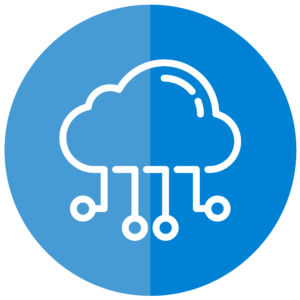Africa is at the beginning of a digital revolution, one that promises to transform its economies, empower its citizens, and generate trust in the continent’s institutions. Amongst the many technologies changing the landscape, Blockchain technology Africa is taking root in Africa. But Africa’s specific socio-economic situation requires more than copy-pasting global solutions. What Africa actually needs is decentralized Blockchain solutions Africa—tailored to cater to its diverse requirements, infrastructures, and cultural nuances. The “one-size-fits-all” mentality not only misses the mark but risks missing the grand promise of blockchain altogether: decentralized empowerment.
The Quilt of Challenges and Opportunities
And where places like Kenya are already freely using Web3 to begin with in the form of mobile money platforms like M-Pesa, there are also regions that are wrestling with the most basic of digital infrastructure. Any successful embrace of the use of the blockchain in Africa must therefore begin by acknowledging this complexity. Whether it’s land ownership disputes in Nigeria or supply chain transparency in South Africa, Blockchain adoption in Africa needs to be tied to hyper-local problems.
In Rwanda, for instance, blockchain is being tested to trace the journey of coffee beans from the farm to the cup, directly benefiting small farmers and fair trade standards. Meanwhile, in Ethiopia, blockchain is being examined as an outlet for the verification of educational credentials — assisting students in obtaining recognition across borders. The obstacles — from low digital literacy and infrastructure shortfalls to trust deficits in institutions — are real. However, they are also home for African blockchain startups to use innovation with culture at its center.
So Why Doesn’t the Rest of the World Use Blockchain the Same Way?
The majority of blockchain protocols were constructed with Western ideals of privacy, data ownership and financial independence in mind. But what works in Silicon Valley does not always fit Nairobi or Accra. For example, in many African economies, they are mostly informal and cash-based. So a blockchain wallet solution developed for credit card users in Europe might not be useful to a vendor in downtown Dakar. Also, there is profound communalism in Blockchain adoption in Africa societies.
Traditional blockchains, known for prioritizing individual ownership and privacy, can be at odds with communal land tenure systems or collective savings groups (including chamas in Kenya). Blockchains in Africa will scan for these nuances, not try to inscribe over them. Even regulatory frameworks differ vastly. Others are only just now in the process of defining legal parameters around digital asset definitions and so forth.Countries like South Africa have pushed forward with a sophisticated fintech regulatory sandbox while others are just starting to find their feet. Attempting to apply a one-size-fits-all blockchain model to such a variety of legal regimes isn’t just inefficient — it’s ineffectual.
African Blockchain Start-ups on the Rise
Into this complexity, a generation of African blockchain startups are beginning to emerge to build for local realities. Start ups like Kotani Pay in Kenya that focus on USSD based blockchain wallets as Blockchain use cases in Africa and Blockchain solutions Africa for the rural unbanked population are changing the game of how people engage with blockchain in Africa. And Nigeria’s Seso Global does even better: it uses Blockchain technology Africa to prevent disputes over land registries; no such global app can block- and tackle out-of-the-box.
But they are not just copying Western ideas — they are reimagining them. They are thoroughly entrenched in their communities, experiencing problems firsthand and building in languages, currencies and formats people can reach and trust. It’s the power of hyperlocal Blockchain solutions Africa.
Blockchain and Financial Inclusion – a Marriage Made for Africa
Nearly 57% of people in Africa still don’t have a bank account. But mobile usage is high, with more than 650 million people owning cell phones across the continent. Herein lies a huge opportunity for blockchain adoption in Africa to circumvent traditional financial systems. Local blockchain can be used to digitize savings groups, facilitate microloans and even back decentralized identity systems for people who don’t have official documents.
In doing so, it is driving Digital transformation Africa from the very bottom up. Rather than bank-based systems that bar access to the poor based on not having identity documents, blockchain-based financial tools present open-source means that can be more easily adopted. But, again, this only works when blockchain tools are built with local constraints in mind — offline functionality, tiny data usage, multi-language support, and intuitive UX/UI for first-time users.
Building Trust with Decentralization
Trust is money in African societies especially in under-governed areas where institutional corruption has eroded faith in government. This is what makes blockchain-powered innovation in Africa so powerful. It offers a secure, transparent system of record that can improve verifiability — for everything from public records to supply chains to election results. Consider Sierra Leone’s trial of blockchain-based voting. Though it hit some bumps, it established the model for a more open system.
In Ghana, blockchain is helping the transfer of land rights, by verifying property rights and thus helping to minimize fraud and discrimination. These practical examples of blockchain in Africa demonstrate that, when tailored appropriately: blockchain can be a trust-instiller in intractable systems. However, trust also requires education. Communities need to know how the technology operates. Without robust public education campaigns, and content in local languages, the technology is in danger of reaching only the same people it’s there to save.
‘Opportunity Has No Limit’: Web3 in Africa
Web3 in Africa From M-Pesa to Instagram, these tech and cultural trends are the foundation of what’s to come. Web3′s ascent in Africa presents a larger narrative of culture transformation — from centralized gatekeepers to a community-led ownership. NFTs and smart contracts would allow musicians, artists and writers to do an end run around intermediaries and get paid directly for what they create. In territories where copyright protection is not great or is not in place, the blockchain offers new methods for protecting ownership of one’s intellectual property.
But cultural success also is a function of language and relevance. When a Nigerian recording artist signs onto Ethereum-based NFT platforms, they might encounter gas fees and restrictions. What if we had an on-the-ground NFT marketplace denominated in local currencies, optimized for a mobile-first population? Here are the types of innovations that African blockchain startups are starting to experiment with.
Digital Transformation Needs Contextualization
You can’t import Digital transformation Africa — rather, it must be built on the ground, brick by digital brick. That’s why localized solutions matter. They are not just technologically efficient — they are socially and economically inclusive. The leap to digital must be contextual, not universal. And here is where the opportunity for governments, NGOs and international investors comes in: partner with the local innovators. Co-create with communities.
Practical Steps for Creating a Local Blockchain Innovation Ecosystem
Invest in educating people to become more digitally literate. Create open-source platforms in local languages. Grant and regulate African blockchain startups. Inspire cross-border experimentation on Blockchain use cases in Africa such as identity management, remittances and health records.
Tech doesn’t solve problems—people do. But tech, if it has its roots in a local context, can help amplify those solutions to scale. Blockchain in Africa has the potential to underpin the next leap forward in the continent’s growth — but only if it listens to people, reaches them where they are and evolves with them.
Final Thought: Africa Deserves Blockchain That’s African, Too
Ultimately, Blockchain technology Africa should be a mirror of African values, problems and dreams. It needs to be pragmatic in its form, integrating in its access and revolutionary in its effect. From street vendors in Tanzania to artists in Senegal and smallholder farmers in Zambia, Africa is ready for digital transformation. But this change must come in a way that feels familiar, that operates offline, that gains trust not through hype but through action. Let there be an end to importing blockchain ideas and the beginning of exporting African solutions. Ready to build with Africa, not just for it? Let’s talk.
Contact Us Today













